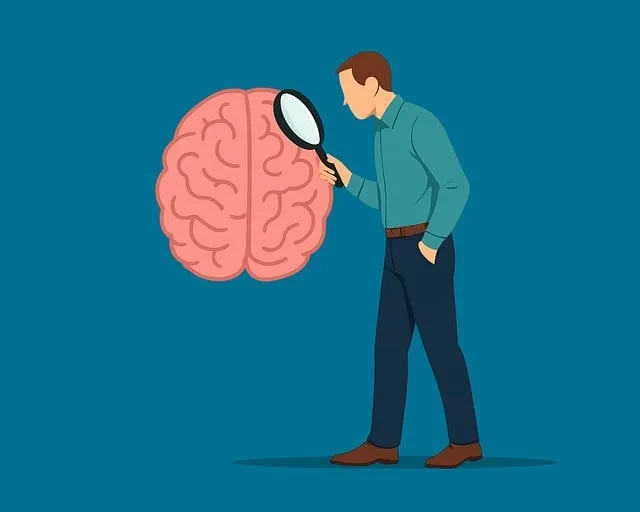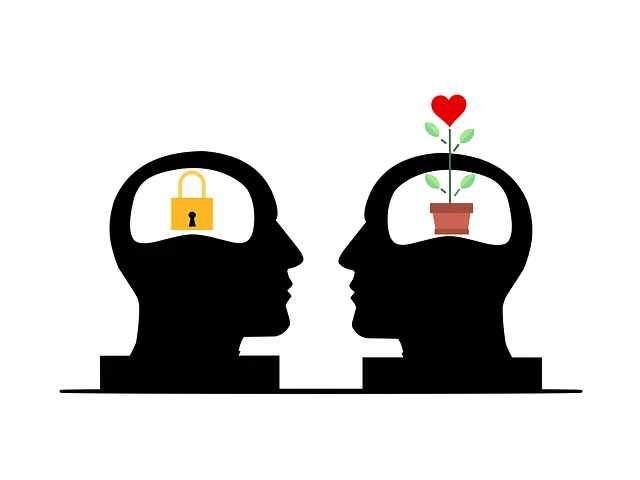Kaiser Permanente Mental Health Lafayette prioritizes cultural sensitivity and advanced diagnostic techniques, leveraging mindfulness meditation, specialized training (like Stress Management Workshops), structured risk assessment, AI algorithms, and emotional well-being promotion to enhance diagnosis accuracy. These strategies cater to a diverse patient population, ensuring nuanced, culturally-aware mental health care through tailored diagnoses and active patient engagement.
At Kaiser Permanente Mental Health Lafayette, efforts to improve mental illness diagnosis accuracy are ongoing. This article delves into the diagnostic challenges faced by healthcare professionals and explores current initiatives aimed at enhancing precision. From advanced training programs to innovative technology integration, these measures strive to optimize patient outcomes. Additionally, it examines future strategies for continuous improvement, highlighting Kaiser Permanente’s commitment to providing exceptional mental health care in Lafayette and beyond.
- Understanding Diagnostic Challenges at Kaiser Permanente Mental Health Lafayette
- Current Efforts to Enhance Diagnosis Accuracy
- Future Strategies for Continuous Improvement
Understanding Diagnostic Challenges at Kaiser Permanente Mental Health Lafayette

At Kaiser Permanente Mental Health Lafayette, navigating the intricate landscape of mental illness diagnosis presents unique challenges. The diverse patient population brings a range of cultural backgrounds and experiences, highlighting the importance of Cultural Sensitivity in Mental Healthcare Practice. Understanding these nuances is vital for accurate assessments as cultural factors can significantly influence how individuals express and perceive psychological symptoms. For instance, what may be considered a sign of anxiety in one culture could be a normal behavioral response in another.
Integrating practices like Mindfulness Meditation has emerged as a promising strategy to enhance diagnostic accuracy. By fostering self-esteem improvement and emotional awareness, mindfulness techniques can help patients better articulate their experiences during therapy sessions. This, in turn, enables mental health professionals at Kaiser Permanente Lafayette to make more nuanced judgments, ensuring that each patient receives a tailored diagnosis that considers both their unique cultural context and subjective experiences.
Current Efforts to Enhance Diagnosis Accuracy

The quest for enhancing mental illness diagnosis accuracy has led to several innovative efforts. Organizations like Kaiser Permanente mental health Lafayette are at the forefront of these initiatives, focusing on comprehensive approaches to improve diagnostic practices. One key strategy involves offering specialized training programs, such as Stress Management Workshops Organization sessions, designed to equip healthcare professionals with advanced skills in mental health assessment. These workshops not only highlight the latest research but also provide practical tools for more precise diagnoses.
Furthermore, implementing risk assessment protocols has become a game-changer. Mental health professionals are now encouraged to utilize structured risk assessment methods, which help identify potential red flags and nuances associated with various mental disorders. By integrating these strategies into clinical settings, organizations like Kaiser Permanente aim to minimize misdiagnoses and ensure patients receive appropriate care, ultimately fostering better outcomes in stress management.
Future Strategies for Continuous Improvement

As technology advances, innovative tools and methods are emerging to enhance mental health diagnosis accuracy at Kaiser Permanente mental health Lafayette. One promising strategy involves utilizing artificial intelligence (AI) algorithms to analyze vast amounts of patient data, including medical records, genetic information, and even social media posts, for pattern recognition and predictive modeling. This approach can help identify subtle indicators of mental illness that may be missed through traditional methods, improving diagnostic precision.
Furthermore, integrating Emotional Well-being Promotion Techniques into the healthcare system can complement these technological advancements. By fostering Mental Health Awareness and Mental Wellness through educational programs, peer support networks, and accessible resources, patients can better recognize their own symptoms and actively participate in their treatment plans. This collaborative approach, combining advanced technology with proactive emotional well-being strategies, holds great potential for continuous improvement in mental illness diagnosis accuracy at Kaiser Permanente mental health Lafayette.
Mental illness diagnosis accuracy is a complex challenge, as evidenced by issues at Kaiser Permanente mental health Lafayette. Current efforts, focusing on education, standardized assessment tools, and data-driven analysis, show promise in enhancing diagnostic reliability. Moving forward, implementing continuous quality improvement strategies, integrating advanced technologies, and fostering collaboration among healthcare professionals are essential to ensure accurate diagnoses and effective treatment for all patients at Kaiser Permanente mental health Lafayette and beyond.






